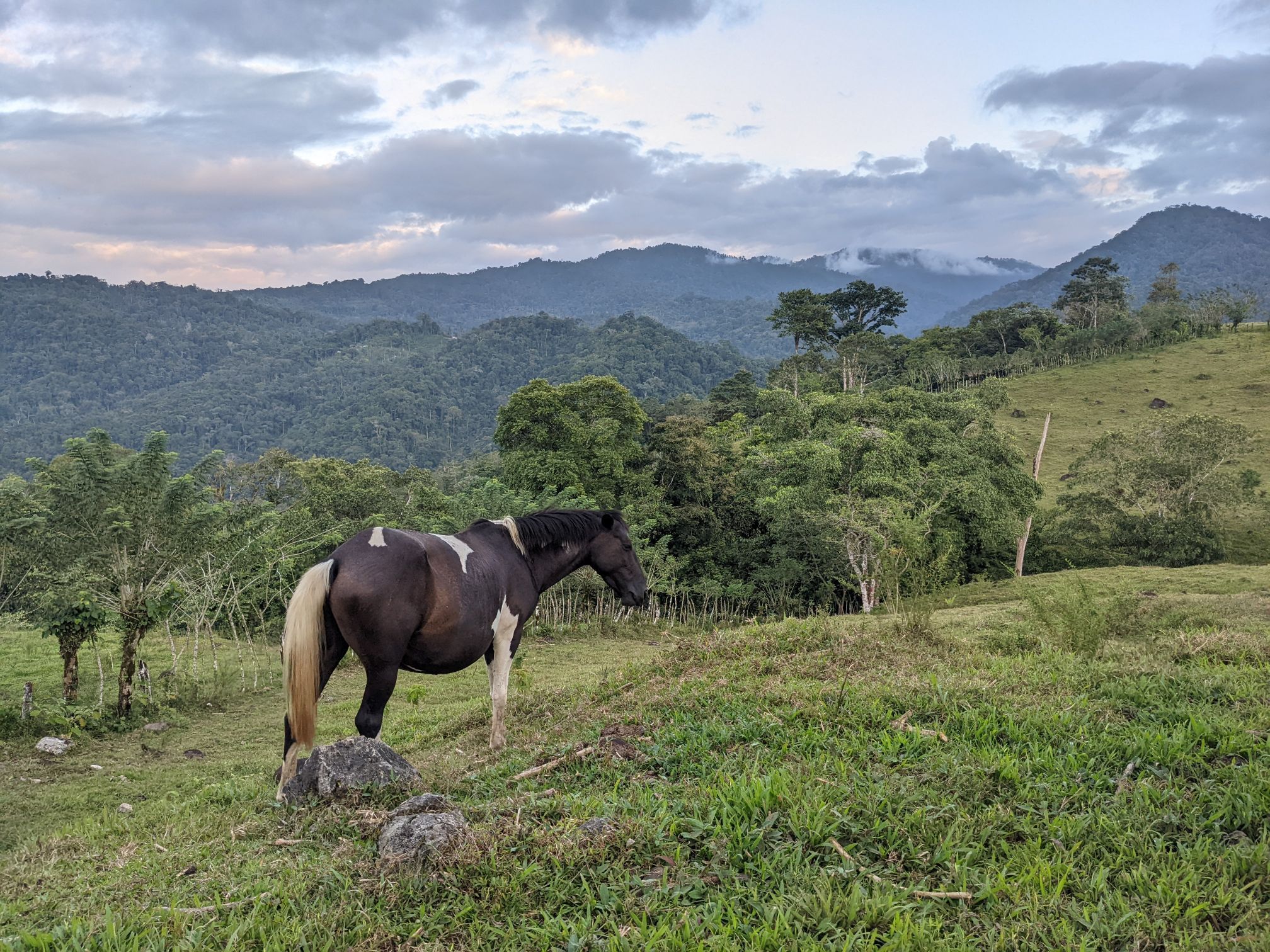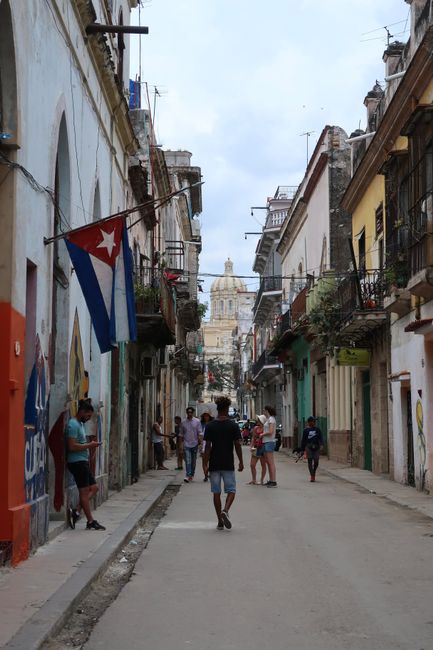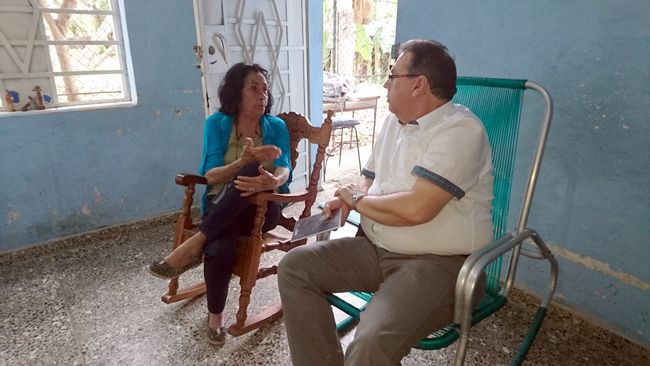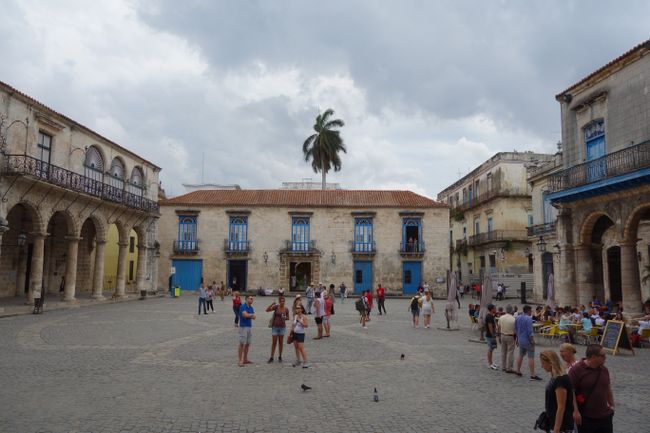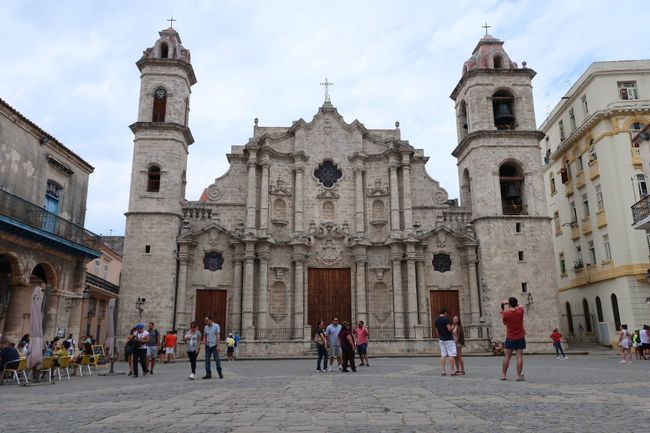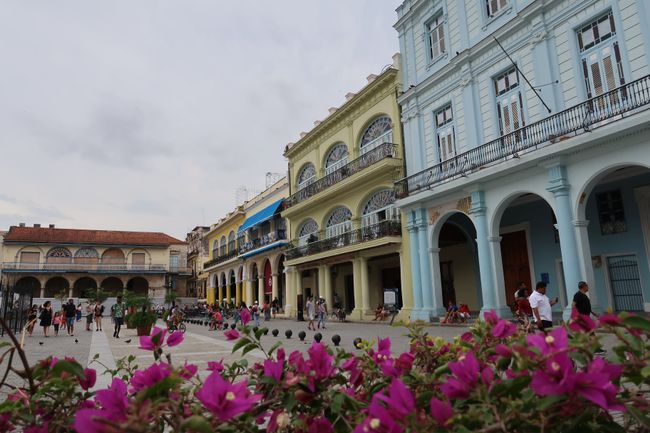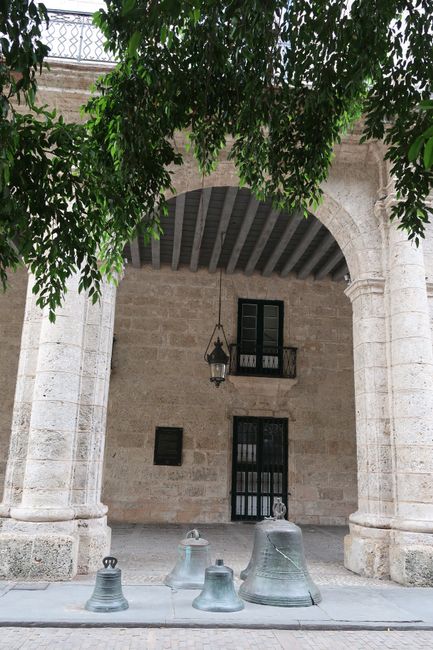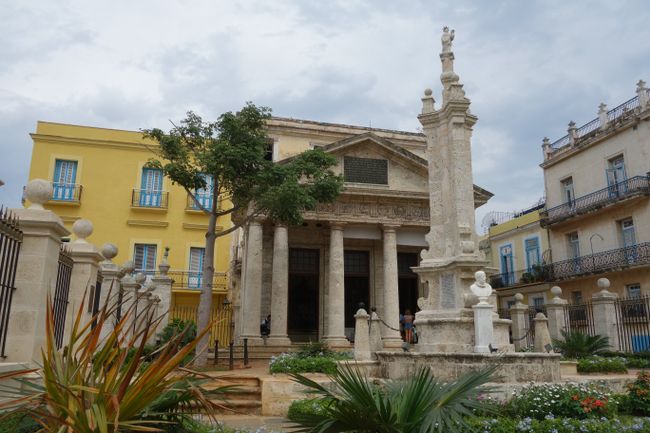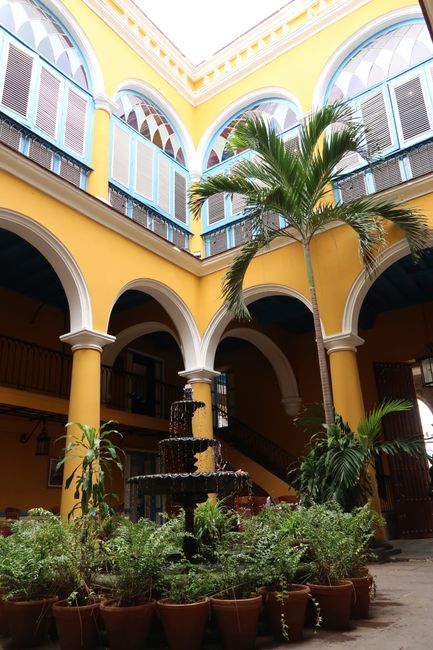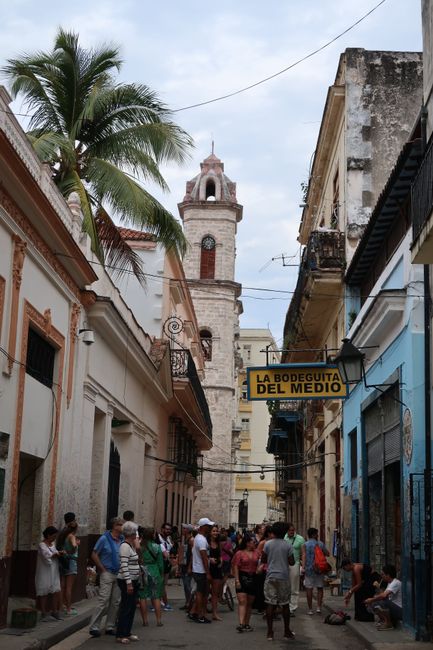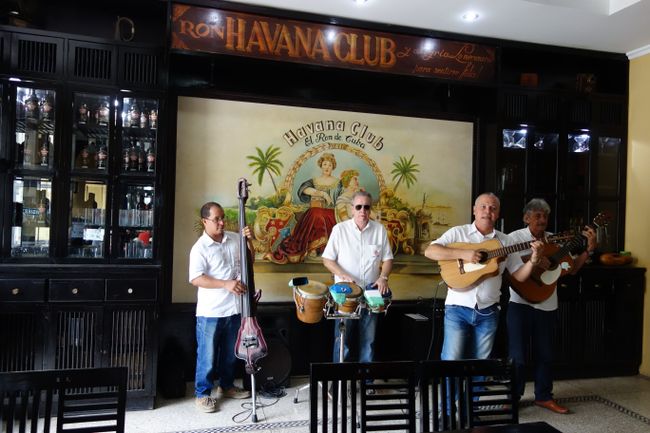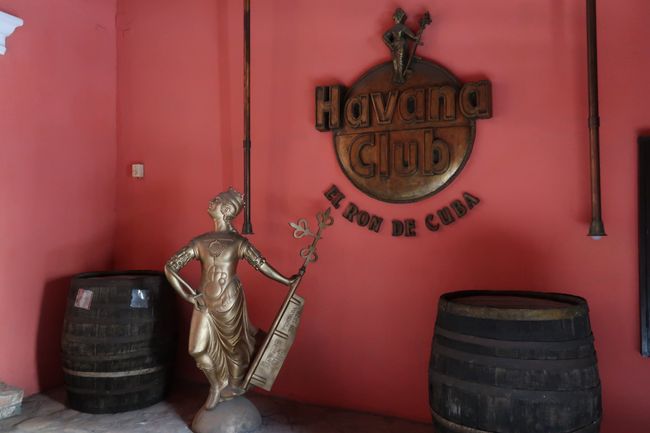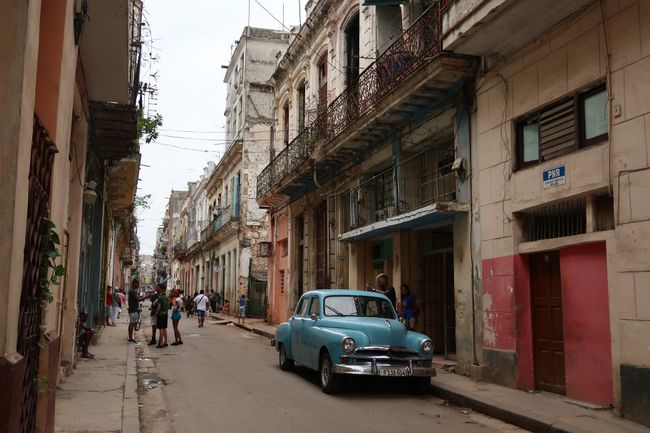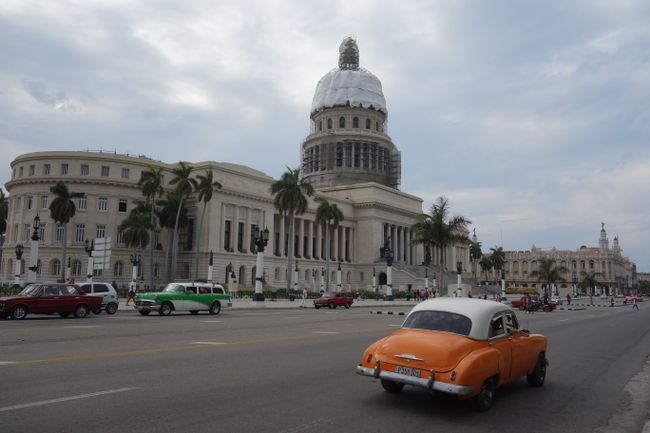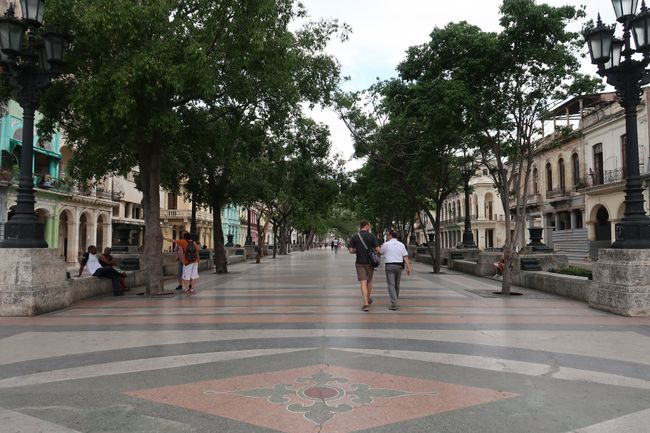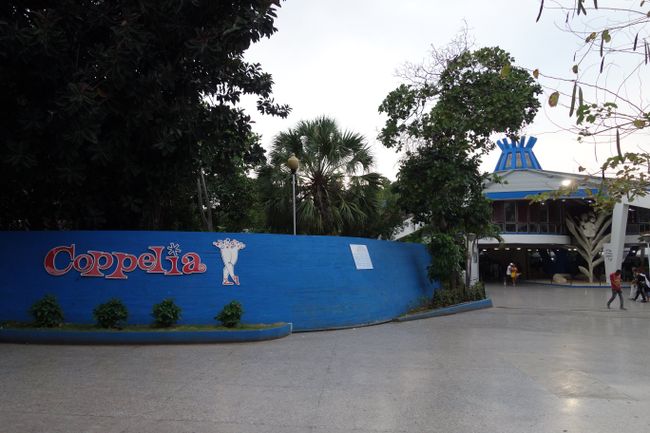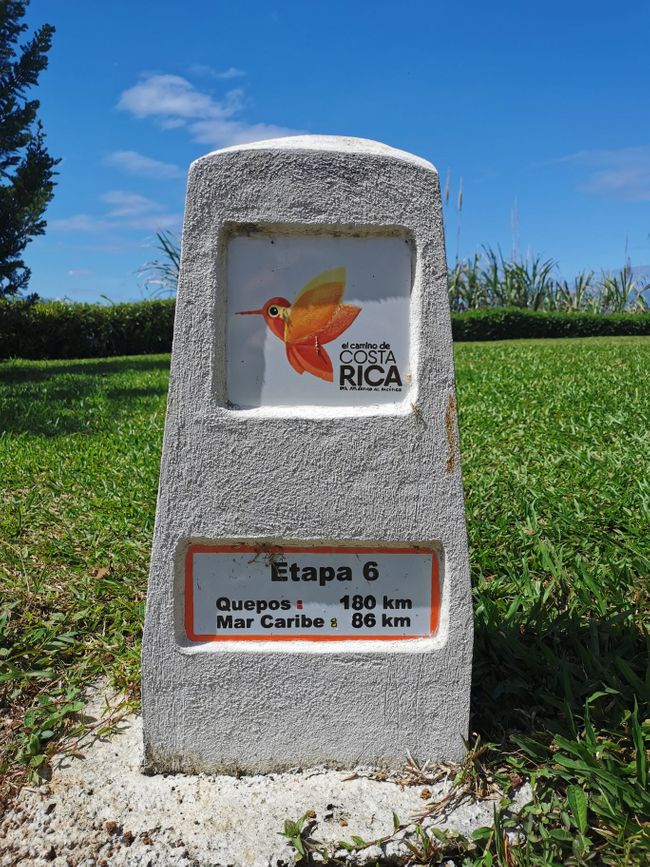
Reisefieber - Alltag ade
vakantio.de/alltagade
Havana Vieja
Wɔatintim: 30.03.2019
Kyerɛw wo din wɔ Newsletter no mu
For breakfast this morning, we tried a small bistro, but the juices were sweeter than sweet. It's typical in Cuba to experience a sugar shock when drinking or eating, unless it's something salty, but salt is also not spared. On the way back, we passed by a church where Sunday service was taking place, but with a lot of noise, as a live band played at full volume and the pastor shouted slogans and the congregation responded, similar to Gospel services in the USA, but with a little more Cuban influence.
Our first activity for today was a visit to my aunt, my grandfather's sister. Family is very important here, and since we haven't seen each other in a long time, my aunt cried tears of joy when we arrived. Her daughters and son were also there, so the five of us enthusiastically talked in Spanish. We sat comfortably in rocking chairs and she told us a lot about the farm in Oriente, where my grandfather is from and where we plan to visit in the last part of our trip. For example, we learned that there is electricity there now and the wooden house was replaced by a stone house after a strong cyclone. We also exchanged contact information for my uncle and aunt in Holguin and Oriente. Then it was time for another round of coffee and we were served Pollo Asado (roasted chicken), Congris (rice with black beans), and Flan for dessert.
In the second half of the day, we finally wanted to explore Havana Vieja (Old Havana). It paid off to have a Cuban with us when looking for a parking space. After a short conversation with the parking attendant, my dad negotiated 2 CUC for the whole day instead of 3 CUC per hour. The same was true for the parking garage during the nights in Havana (you shouldn't leave the car outside at night, otherwise the tank will be tapped). We can be sure that our money is going directly into the pockets of the respective people.
The Plaza de la Catedral in Havana Vieja was beautifully restored on the occasion of the Pope's visit a few years ago. Unfortunately, the cathedral was closed. Old Havana has many beautiful courtyards and buildings from the colonial era. We continued to El Templete, the house where Havana was founded, and it has a distinctive tree (a ceiba) in the courtyard, but it seems that it had to be heavily pruned after a storm. A little further on, there was a huge cruise ship in the harbor and Cuban people fishing next to it, a very contrasting sight. Next, we visited Plaza de Armas (the main square), where we ate Churros in a small park right next to it during a break.
Afterwards, we actually wanted to visit the Rum Museum. However, it was already closed. But we could still go into the foyer with some Havana Club artifacts and into the adjacent bar, where a band was playing classical songs from the Buena Vista Social Club. Next, we reached Plaza Vieja, which has also been completely renovated and shone with very beautiful colorful houses and stained glass windows.
We continued walking until we reached the Capitol, one of the landmarks of Havana, which is a replica of the one in Washington, but ... meters taller! It should be mentioned that Havana will be 500 years old this year. You can see advertisements everywhere for the celebrations on October 10th, and Havana seems to be getting ready for it. That's why the Capitol is also being restored with great effort. It's great that this important monument in Havana is getting renewed, but unfortunately we couldn't go inside the magnificent interior and the imposing dome, which used to shine from afar, is currently scaffolded. But not only tourists seem to benefit from this enthusiasm for the birthday celebrations, the basic supplies for the Cubans living here are also expected to improve significantly. The waste disposal is being expanded with new vehicles, new water pipes are being installed in Old Havana (the pipes, most of which are still from colonial times, constantly lead to water pipe bursts, which sometimes results in no water), and the street lighting is being expanded.
Afterwards, we strolled up Paseo del Prado again in daylight, where it was much busier: arts and crafts stands, children rollerblading, and couples taking dance lessons right in the middle of the path. When we arrived back at the car, we drove back to our accommodation.
Later on, we decided to have an alternative dinner and go to the famous ice cream parlor Coppelia in Havana, which was diagonally across from us. My dad told me that when he was a child, there used to be up to 50 different flavors of ice cream with many exotic flavors. Those glorious times seem to be over. Nevertheless, many Cubans stand in line for hours for an ice cream, and since today is Sunday, the line was quite long. After surveying the situation, we discovered that they had set up a separate small area for tourists and Cubans who pay with CUC - without the need to wait in line. We chose laziness and decided not to stand in line. Looking at the menu was disappointing: there was only strawberry, chocolate (which was actually strawberry thinly mixed with chocolate), and vanilla. However, we still enjoyed it. When leaving Coppelia, we realized that there were a few more flavors available for those waiting outside, and they had to line up outside according to the flavor they wanted, so there were several lines. A supervisor would then bring in the next person so they could wait in the shade. A European has to figure that out.
In the evening, we sat on our balcony for a long time, drank the guava juice from the previous day, as well as rum, and enjoyed the pineapple we bought by the roadside.
Kyerɛw wo din wɔ Newsletter no mu
Anoyie (1)
Karin
Beim Lesen deines ausführlichen Berichtes bereichert mit den schönen Fotos hatte ich das Gefühl dabei zu sein bei euren Erkundungen. Schön, dass endlich mal was zur Erneuerung getan wird, vor allem die Wasserrohre hatten es schon vor 30 Jahren nötig ausgetauscht zu werden. 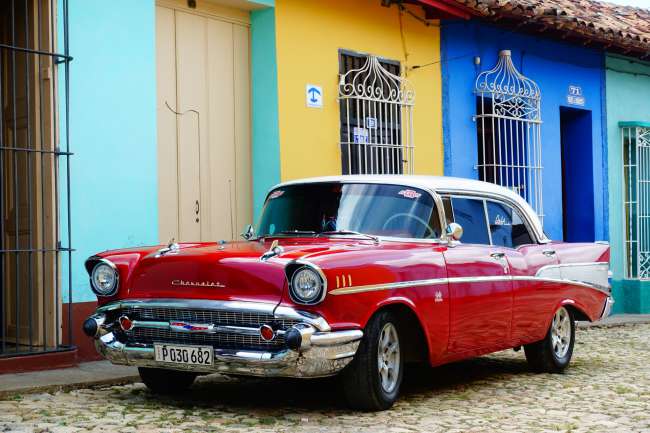
Akwantuo ho amanneɛbɔ Cuba
